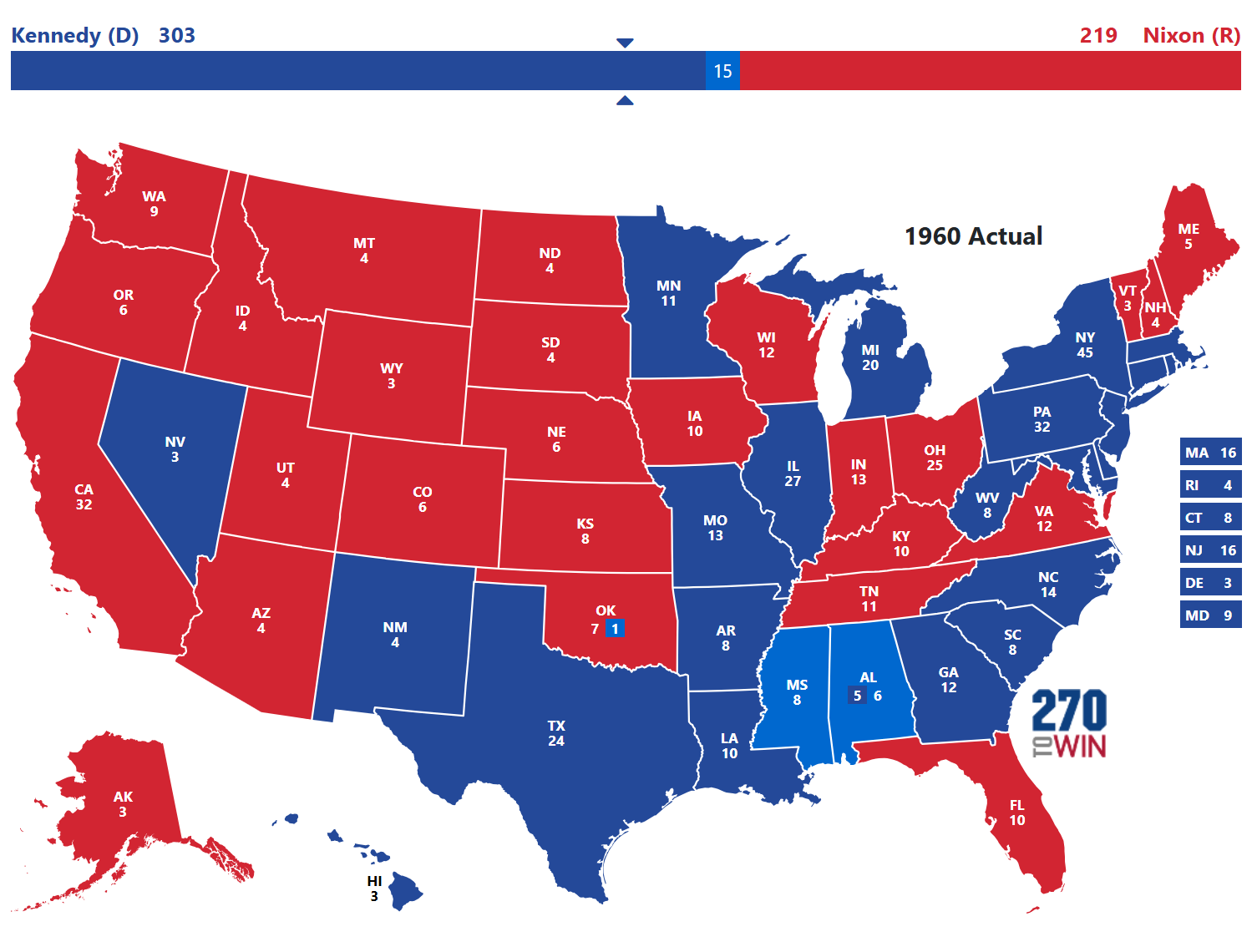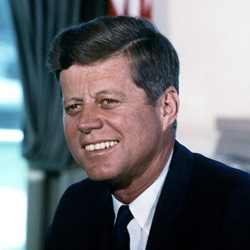1960 Presidential Election
The United States presidential election of 1960 marked the end of Dwight D. Eisenhower's two terms as President. Eisenhower's Vice President, Richard Nixon, who had transformed his office into a national political base, was the Republican candidate, whereas the Democrats nominated Massachusetts Senator John F. Kennedy.
The electoral vote was the closest in any presidential election since 1916. In the popular vote, Kennedy's margin of victory was among the closest ever in American history. The 1960 election also remains a source of debate among some historians as to whether vote theft in selected states aided Kennedy's victory. Virginian Senator Harry F. Byrd received 15 electoral votes from 14 Southern and one Oklahoma unpledged and faithless electors, respectively.
This was the first presidential election in which Alaska and Hawaii participated, having been granted statehood, respectively, on January 3 and August 21 of the previous year. It was also the first election in which both candidates for president were born in the 20th century.
Source: Wikipedia
1960 Election Results
| Candidate | Party | Electoral Votes | Popular Votes | ||
|---|---|---|---|---|---|
| ✓ | John F. Kennedy | Democratic | 303 | 34,227,096 | |
| Richard M. Nixon | Republican | 219 | 34,107,646 | ||
| Harry F. Byrd | Democratic | 15 | 116,248 |

1960 Election Facts
- Welcome: Alaska and Hawaii become states during this election cycle
- Vice-Presidential Succession: Kennedy was assassinated on November 22, 1963, replaced by Lyndon B. Johnson
- Nixon won Oklahoma; however one elector cast a vote for Byrd
- Byrd was not on the ballot. He received 14 of his 15 electoral votes from winning slates of unpledged electors in Mississippi (8) and Alabama (6)
- Kennedy is first Catholic, and youngest person ever elected President
- Issues of the Day: Sputnik/space (keeping up with USSR technologically)


